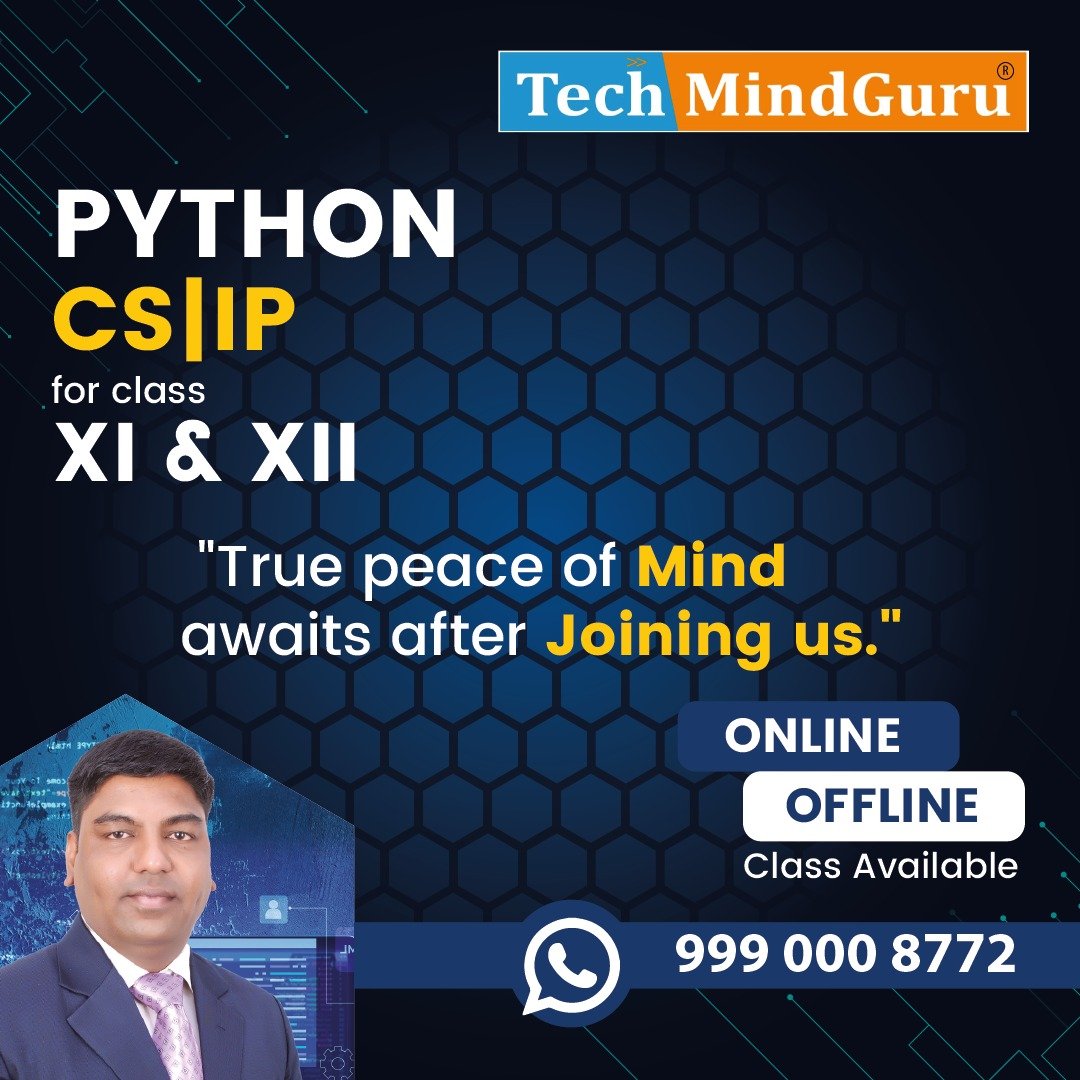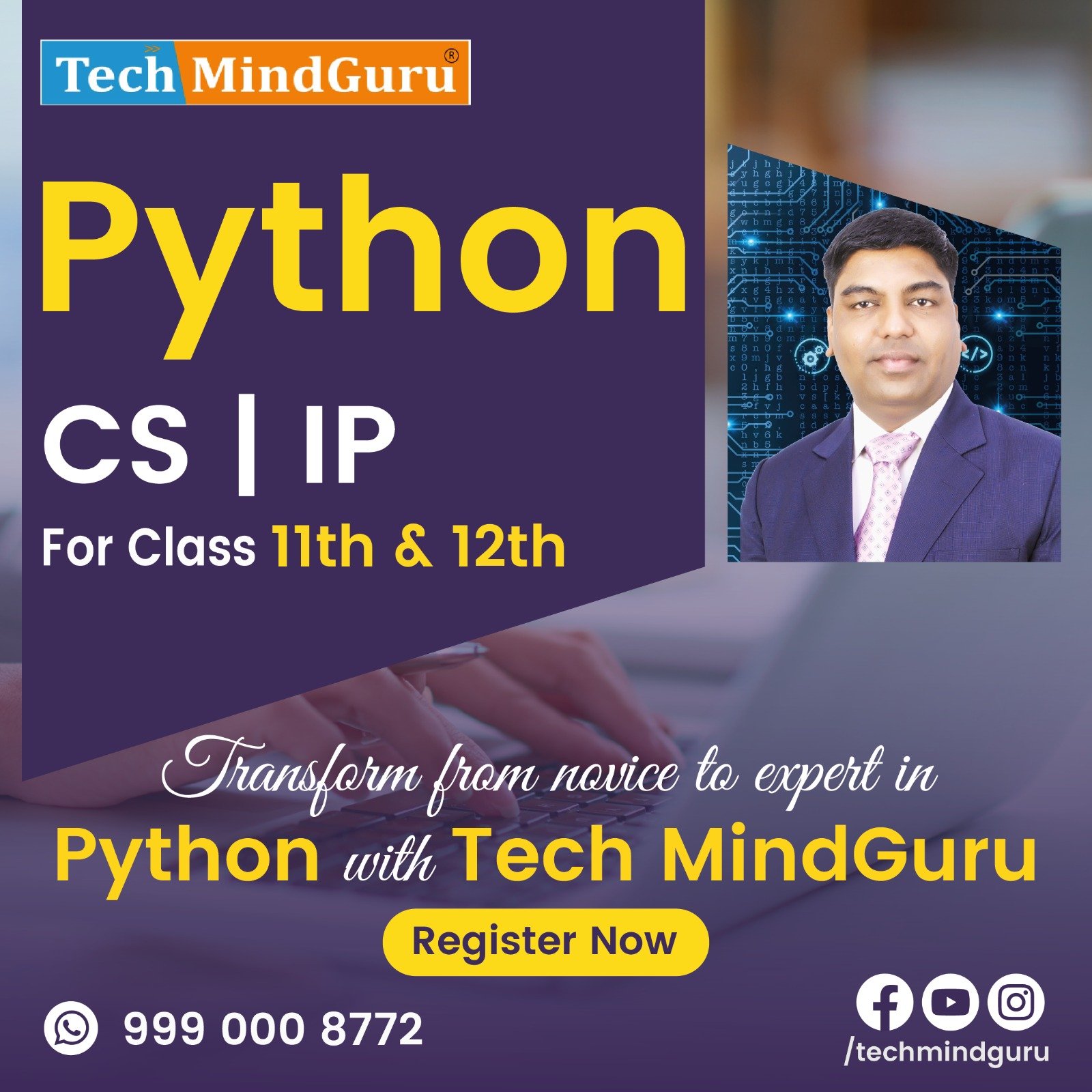
CBSE Informatics Practices: Your Gateway to a Bright Future
Informatics Practices (IP) is one of the most sought-after subjects offered by the CBSE board, especially for students aiming to build a career in the technology domain. With its comprehensive syllabus covering Python programming, Pandas for data manipulation, Matplotlib for data visualization, and MySQL for database management, IP provides a strong foundation for students looking to explore opportunities in computer science, data science, and software development. This blog will guide you through the subject's key topics, how to score best in exams, career options, and why opting for Informatics Practices can be a beneficial decision.
Why Opt for Informatics Practices?
Career Opportunities: By opting for IP, students can step into a multitude of career paths, such as: Data Scientist: Knowledge of Python and Pandas makes IP students well-equipped for data-related jobs. Web Developer: Python is a major player in web development, allowing students to learn popular frameworks like Django and Flask. Database Administrator: Mastery of MySQL in IP opens doors to database management roles. Software Developer: With IP, students gain a strong programming base which is essential for software development.
Learning Future-Ready Skills:
IP introduces modern technologies and tools that are crucial in today's digital era. By learning Python, the most versatile and in-demand language, students stay ahead in coding. Pandas and Matplotlib teach them data analysis and visualization techniques, which are highly valued in data science and machine learning fields.
Balanced Approach – Theory and Practical:
One of the key advantages of IP is its balance between theory and practical components, preparing students for real-world applications. Theory provides essential knowledge, while practicals ensure hands-on experience.
Key Topics to Focus On
Python Programming: Understanding the basics of Python, including loops, functions, lists, and dictionaries, is crucial. Master object-oriented programming (OOP) concepts to score better in exams.
Pandas:
Pandas is a powerful library used for data manipulation. Focus on data frames, series, reading and writing data from CSV files, and performing data analysis operations.
Matplotlib:
Learn how to create and customize graphs, plots, and charts. Matplotlib helps you visualize complex data easily, a skill that is increasingly important in many career fields.
MySQL:
Understanding databases and SQL commands (like SELECT, INSERT, UPDATE, DELETE) is vital. Practice writing efficient queries and managing databases.
How to Score Best Marks
Thorough Understanding of Concepts: Make sure you thoroughly understand each concept before moving on. Practice Python programming daily and explore different functions in Pandas and Matplotlib.
Work on Practical Skills:
The practical component carries a substantial weight. Ensure that you are proficient in writing Python programs, manipulating data with Pandas, creating visualizations, and working with databases using MySQL.
Project and Practical Files:
CBSE IP includes practical examinations where you must submit a project and a practical file. Choose a relevant project topic and ensure your practical file is neat, well-organized, and error-free. These contribute significantly to your final marks.
Solve Previous Year Papers: Solving past papers will help you understand the exam pattern and types of questions asked. Additionally, time yourself during practice to improve your speed. Revise Regularly: Regular revision of theoretical concepts is important. Focus on key topics like data handling, Python functions, MySQL queries, and data visualization techniques.
Where to Study
- To excel in IP, students can rely on a mix of online resources and coaching:
- Tech MindGuru: Offers personalized coaching in Python, Pandas, Matplotlib, and MySQL, with comprehensive project and practical support.
- Books: NCERT textbooks and reference books like "Informatics Practices for Class 12" by Sumita Arora are ideal resources.
- Informatics Practices is a versatile subject offering both theoretical and practical knowledge essential for students who aspire to work in tech-oriented fields. By mastering Python, Pandas, Matplotlib, and MySQL, students not only perform well in their exams but also open doors to exciting career opportunities in data science, software development, and IT industries. By dedicating time to practice, understanding core concepts, and utilizing the right resources, you can achieve high marks and build a strong foundation for your future.
